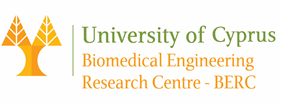 Precision medicine aims to combine broad data collected over time about an individual’s genetics, environment, and lifestyle, to advance disease understanding, aid drug discovery, and ensure application of appropriate therapies. In this scenario, the development of sensing technologies plays a crucial role not only limited to accomplish faster and inexpensive methods for personalized medicine. Sensor technologies show great potential for developing affordable and reliable wearable biometric devices, lab-on-a-chip and point-of-care platforms . Moreover, the implementation of these sensors in mobile devices for easily recording clinical parameters and getting remote assistance is nowadays a realistic goal. Sensor technologies hold enormous potential for understanding biological responses at an individual level by implementing them to record biological interactions and to develop drug screening platforms . In combination with advances in big data, comprehensive data from sensing systems taken from a large number of individuals are essential tools for moving fast towards one-off prevention and treatment plans.Personalized medicine benefitssignificantly from the inclusion of rich new dimensions and sources of data. However, realizing these improvements relies upon the development of novel informatics methodologies and sensing systems to advance both the science and translational applications of precision medicine. There are current projects underway to collect multi-scale molecular, sensor, clinical, environmental and behavioural data from large population cohorts to enable more comprehensive and dynamic models of individual biology and personalized health. Moreover, big efforts are being currently carried out to design sensing systems able to monitor, in the lab from easy to obtain samples or in real time from mobile applications or wearable devices, individuals.In the future, precision medicine is expected to have individuals or patients surrounded by a cloud of data varying between those directly monitoring the individual, and those quantifying the environment affecting the individual. In this context data from genome, transcriptome, proteome, metabolome, activity, phenome, interactome, environmentwill be necessary and the development of reliable, reasonably priced sensors able to record some of these data will be a key topic. “Omics” technologies point to a future in which clinical diagnoses will be rather based on the molecular , of every individual rather than on the measurement of particular biomarkers. In this context, the IPMT CoE will concentrate on sensing technologies combining convenient data acquisition with processing systems to form the base for developing efficient reading technologies of clinical, molecular and genetic signatures identified by the Centre’s groups in translational omics, bioinformatics, imaging etc. Sensor data will be streamed continuously, and data will cover a wide range of spatial locations, either through fixed sensors, or mobile sensors with varying position over time. The expertise of UCY in electronics and embedded systems, the IBMT expertise in microfluidics, ex vivo and in vitro testing, and test automation will complement the CIBER-BBN expertise in nanoscience and nanomedicine to create novel tools to enable the implementation of precision medicine.They will provide real-time, inexpensive, objective measurements of quantities which are otherwise unknown or only measured through more expensive clinical tests. All these data will be treated using big data procedures to deliver results in real time.
Precision medicine aims to combine broad data collected over time about an individual’s genetics, environment, and lifestyle, to advance disease understanding, aid drug discovery, and ensure application of appropriate therapies. In this scenario, the development of sensing technologies plays a crucial role not only limited to accomplish faster and inexpensive methods for personalized medicine. Sensor technologies show great potential for developing affordable and reliable wearable biometric devices, lab-on-a-chip and point-of-care platforms . Moreover, the implementation of these sensors in mobile devices for easily recording clinical parameters and getting remote assistance is nowadays a realistic goal. Sensor technologies hold enormous potential for understanding biological responses at an individual level by implementing them to record biological interactions and to develop drug screening platforms . In combination with advances in big data, comprehensive data from sensing systems taken from a large number of individuals are essential tools for moving fast towards one-off prevention and treatment plans.Personalized medicine benefitssignificantly from the inclusion of rich new dimensions and sources of data. However, realizing these improvements relies upon the development of novel informatics methodologies and sensing systems to advance both the science and translational applications of precision medicine. There are current projects underway to collect multi-scale molecular, sensor, clinical, environmental and behavioural data from large population cohorts to enable more comprehensive and dynamic models of individual biology and personalized health. Moreover, big efforts are being currently carried out to design sensing systems able to monitor, in the lab from easy to obtain samples or in real time from mobile applications or wearable devices, individuals.In the future, precision medicine is expected to have individuals or patients surrounded by a cloud of data varying between those directly monitoring the individual, and those quantifying the environment affecting the individual. In this context data from genome, transcriptome, proteome, metabolome, activity, phenome, interactome, environmentwill be necessary and the development of reliable, reasonably priced sensors able to record some of these data will be a key topic. “Omics” technologies point to a future in which clinical diagnoses will be rather based on the molecular , of every individual rather than on the measurement of particular biomarkers. In this context, the IPMT CoE will concentrate on sensing technologies combining convenient data acquisition with processing systems to form the base for developing efficient reading technologies of clinical, molecular and genetic signatures identified by the Centre’s groups in translational omics, bioinformatics, imaging etc. Sensor data will be streamed continuously, and data will cover a wide range of spatial locations, either through fixed sensors, or mobile sensors with varying position over time. The expertise of UCY in electronics and embedded systems, the IBMT expertise in microfluidics, ex vivo and in vitro testing, and test automation will complement the CIBER-BBN expertise in nanoscience and nanomedicine to create novel tools to enable the implementation of precision medicine.They will provide real-time, inexpensive, objective measurements of quantities which are otherwise unknown or only measured through more expensive clinical tests. All these data will be treated using big data procedures to deliver results in real time.
